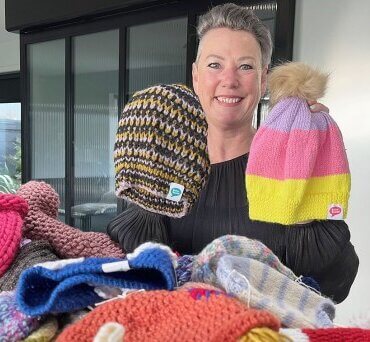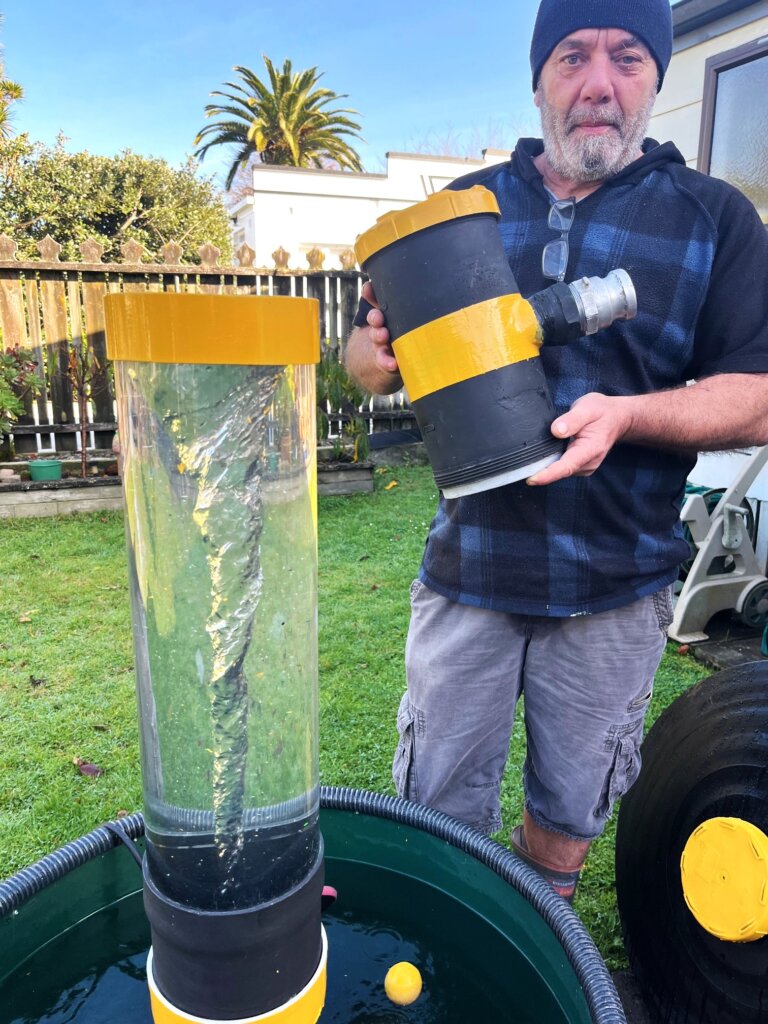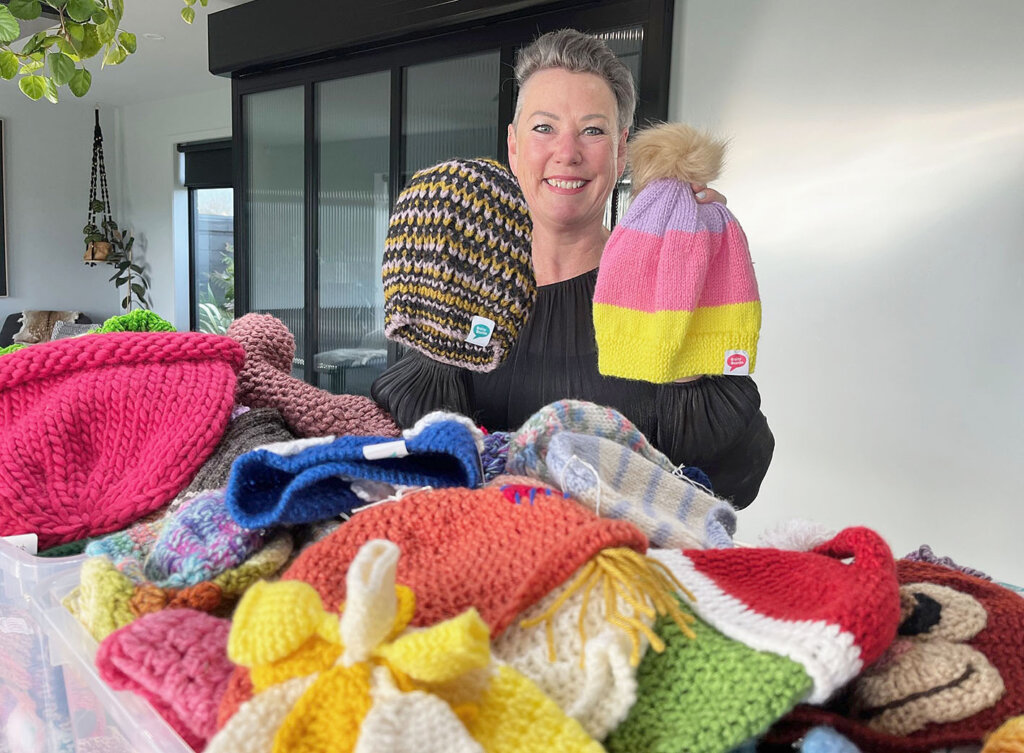
Sarah Verran
Two Waipa residents are pinning their hopes on a successful outing at this week’s National Fieldays.
One of them is the Cambridge-based chief executive of Brain Tumour Support NZ, Sarah Verran, who hopes the national organisation’s presence at Fieldays will help grow awareness around brain cancer and help boost support.

Naldo Zryd in his Cambridge garden with the VS150 Vortex Stirrer he is exhibiting at National Fieldays this week.
The other features the VS150 Vortex Stirrer, entered into this year’s Innovation Awards, designed and made by Swiss-born Cambridge resident, Naldo Zryd, under his label Lebendwasser.
He says it has the agricultural effluent problem in mind and can be used to oxygenate and clean water in ponds of all sizes.
Zyrd’s earlier invention, a water ratio imploder, was included in the 2017 Fieldays Innovation Awards, and he was a finalist in the 2020 Fieldays No.8 Wire National Art Awards with a creation that also involved a swirling vortex of water.
Neither a scientist nor a natural-born marketer, Zyrd, a chef, has been fascinated by vortices for decades. He found the vortex provided a solution when making ice sculptures, clearing the water as it froze.
“I was hooked from then on,” said Zyrd. “I have worked on several versions of the VS150 since then. This is the result of years of trial and error, it can operate using small pumps and because it sits on a float, it can be set and left to do its work. I’m looking forward to seeing the reaction at Fieldays.”
Sarah Verran, on the other hand, is an experienced marketer, but it was her experience with brain cancer through her now 19-year-old daughter that inspired her to become involved. The Brain Tumour Support NZ Trust started around 2019-20 to offer support to those diagnosed with brain tumour and Verran said it was important that the topic “is known about before it is needed”.
Their first Fieldays participation follows the launch of a new fundraising platform ‘No Going Back’, an initiative at the heart of last month’s Brain Tumour Awareness Month, entitled Make May Matter.
“A brain tumour diagnosis brings fear and uncertainty. Your life changes from that moment and there is no going back. That is what is behind our fundraising campaign,” she said.
There was no such support in 2015 when the Verran family received news of their 10-year-old daughter’s diagnosis with a rare brain tumour. “We were thrust into months and years of surgeries and treatments with often overwhelming information coming from all sides and really no time to process it.”
She said around 350 New Zealanders are diagnosed with a primary brain tumour each year, with some 260 dying from it annually. Brain cancer kills New Zealand children at almost double the rate of leukaemia; it can affect anyone at any age, and its causes remain unknown.
With no government backing, the trust relies on grants, donations and fundraising to provide patient and caregiver support. Central to that is their Brain Box care packages which go out free to anyone diagnosed with brain cancer, and which include a set of Patient Guides and an array of gifts, including what have become known as Brainy Beanies for added comfort.
It is these beanies, currently coming in by the box-load from around the country, which will be sold at Fieldays to help raise funds.

Sarah Verran, with some of the hundreds of ‘Brainy Beanies’ being sold at National Fieldays.








